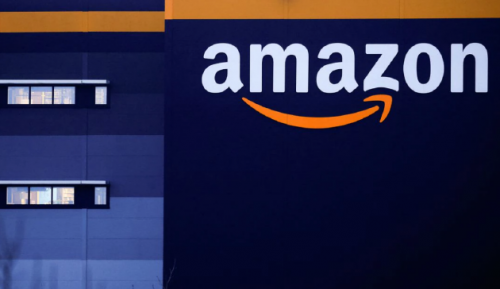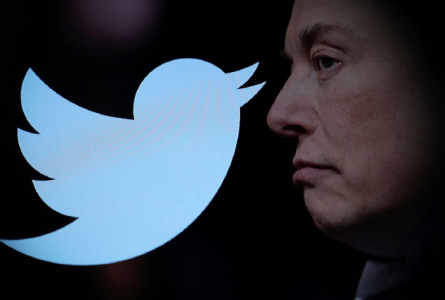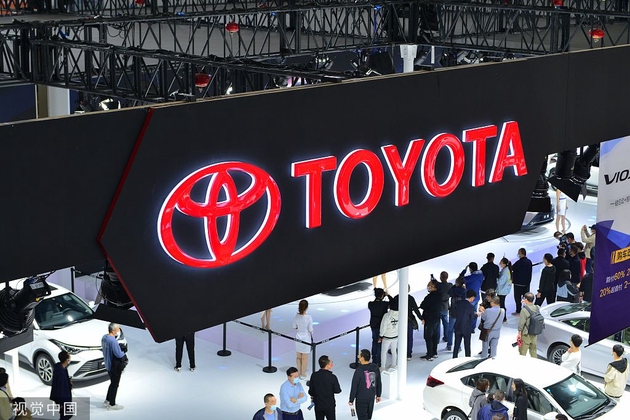your current location is:Home > Finance > depthHomedepth
Musk beats the wolf blood to Silicon Valley
Good salary, not too hard work, life and work balance is very important. You can enjoy everything in the company: drink unlimited coffee, eat a variety of delicacies, have a game of table tennis with colleagues, and stretch your mind in the meditation room. Every now and then, a new job comes your way, offering a better salary and promising more enticing benefits.
Silicon Valley work culture seems to be the way it should be, but things are quietly changing these days.
In September, social media Snapchat laid off about 1,300 people, accounting for 20% of the company's workforce. That same month, Meta and Google were reported to be "surreptitiously" laying off employees, silently lowering headcount by eliminating business groups and giving employees 60 or 90 days to find new jobs.
In October, Musk officially became the new boss of Twitter. Everyone on Twitter was in danger and even worked 80 hours a week. Photos of employees sleeping on the office floor went viral on social networks.
In November, Musk, who took over Twitter for a week, started the "bloody layoffs", laying off 3,800 people a day, and fired 4,000 contract workers again within a few days. The next step is to cancel telecommuting, cancel free canteens, and let employees sign a "guarantee" for long-term and high-intensity work.
Although this move has caused many employees to choose to resign, it does not seem to have affected Musk's promotion of a "wolf-like" workplace culture. Local incidents At 1:30 in the morning on November 19, Musk tweeted that "the code review is over and he is preparing to leave the company", accompanied by a group photo with dozens of employees.

In Silicon Valley, "flood layoffs" are becoming more and more common. This month, Meta also announced layoffs, with a scale of 11,000 people, accounting for 13% of the company's employees; The scale of layoffs will be close to 10,000.
The management of technology giants seems to be telling practitioners with actions that it has always been so unreasonable. Silicon Valley may have been a utopia for technology workers, but now it is time to wake up from the dream.
A
The changes in Silicon Valley happened before Musk took over Twitter.
In September of this year, at Google’s all-hands meeting, employees complained about the company’s recent employee benefits, including the cancellation of travel and entertainment allowances. CEO Sundar Pichai (Sundar Pichai) warned employees not to equate fun with money.
Two months before this, Sundar had warned employees that they must increase productivity and attention, and publicly expressed the hope that the company's productivity would increase by 20%.
Google has always been known for its super high employee benefits. These benefits not only involve eating, drinking, and even encourage employees to take risks. Google's 20% project benefits allow employees to set aside 20% of their time each week to develop their own projects. Therefore, it seems quite inconsistent for Google to say "increased productivity".
Meta was also at one point pressing hard on the staff. The first is the reduction of benefits. In March, Meta canceled laundry benefits, postponed dinner until 6:30 pm and canceled take-away lunch boxes, which made employees worry about the company's situation and their own situation.
In June, Mark Zuckerberg (Mark Zuckerberg) threatened employees almost directly as CEO, saying that "there may be some people in the company who should not be here at all." In July, Zuckerberg said on the company's second-quarter earnings call that Meta plans to "reduce headcount growth steadily over the next year," adding that "I want us to do more with less." .
It was also during this period that Meta was reported to have "secretly laid off employees". It abolished departments, canceled positions, and gave affected employees 30 days to find jobs internally, using this method to silently reduce the number of employees.
While technology giants are still "hard-heartedly" exhorting employees to work harder and "secretly" reduce the number of employees, some companies have already begun large-scale layoffs, including Snapchat's one-time layoff of 20%.

The arrival of Musk has moved all the secret pulls into the sun-cutting off half of the number of employees in one day has brought the bloody level of layoffs to a higher level. "Employees sleep on the floor" will be repeated by other bosses. "Work" is concretized, and the cancellation of telecommuting and free canteens is more thorough and decisive than the welfare cuts of companies such as Google and Meta.
According to Insider, some tech investors believe that as companies grapple with the economic downturn in the coming months, Musk's cost-cutting measures on Twitter may soon become the new standard in Silicon Valley: "He showed the entire Silicon Valley that you You can slash expenses, you can turn a profit, you can do it quickly. It really sets a new standard, and some people (tech executives) might say, maybe we should go further.”
Therefore, the recent layoffs of Meta and Amazon are hard not to remind people of Musk's "leading role". The layoffs of the two are not only drastic (both on the scale of 10,000 people), but also one-off and public.
B
The welfare cuts and large-scale layoffs that are happening in Silicon Valley today would have been unimaginable if they were placed more than a decade ago.
The US "Business Week" once summarized "proper Silicon Valley culture" as encouraging risk taking, tolerance for failure, innovation and continuous improvement. And its appearance is flatness, freedom, and the company's almost extreme generosity to employees, and employees have a strong enthusiasm for work itself.
Here's a glimpse into Silicon Valley's early days: Microsoft's "free towels" incident in 2004.

The cause of the incident was that the human resources manager at the time canceled the free towels in the cloakroom of the company's underground parking garage out of cost-cutting considerations. This move caused dissatisfaction among many employees, who expressed their anger through blogs or information message boards. Some employees ridiculed that "this move has increased Microsoft's earnings per share by 0.000001%."
Although the human resource manager felt that the huge reaction of the employees was a bit unreasonable, complaining that "it was like taking 90% of their salary." But Microsoft's management didn't take employees' anger lightly, and the following year they named a new head of human resources.
The new director has a new trend. Microsoft employees not only got free towels again, but also welcomed 458 brand new Starbucks coffee machines. In addition, the company also added "mobile medical care" on the basis of free medical care, that is, direct dispatch The doctor went to the employee's home for emergency treatment.
For Microsoft, the most important thing is a series of initiatives to reduce the turnover rate of employees: Microsoft's staff turnover has been reduced from 10% in 2005 to 8.3%. In 2022, this incident seems to be a bit of a "big fuss", and it is also very enviable.
By around 2014, the welfare competition among Silicon Valley companies had reached a higher level. Google announced that it would provide DNA testing for employees or family members suffering from cancer to help them find the best drugs for treatment. This testing is worth 5,800 to 7,000 US dollars . Google and Apple have also successively said that they will pay for the freezing of eggs for female employees.
Silicon Valley work culture even spills over into other industries. "Wired" magazine once reported on this phenomenon. Some non-tech companies spared no effort to follow the example of Silicon Valley. For example, the United Shore bank in Michigan has arranged a secret room in its office, which can be used for team building at any time. Comwall, a data management company in New Jersey, has a slide between the third and fourth floors, and the office has ping-pong and pool tables, among other things. CoverMyMeds, an Ohio-based health care company, offers meditation spaces with on-call chiropractors.
When the tech industry is booming, everything about it seems rosy and imitable.
C
But today, technology companies have to "return to the vulgar" and become more practical. In reality, it means less "generosity" to employees and higher requirements on employees. People find that the superficial "work-life balance" and the company's daily life with high benefits are just embellishments that can be gently swept away; work is just work, and the company will not love you forever.
Before the Twitter layoffs, a photo went viral on the social network. In the photo, an employee is sleeping on the office floor, apparently working overtime or something.

The woman in the photo is Ester Crawford, a product executive at Twitter. A debate about the intensity of the work has erupted online, with some finding it unacceptable that working all night is not only a violation of labor laws, but also traumatic. Others, however, praised Crawford's dedication.
An employee said after Musk took over Twitter: "In the past, colleagues would be ashamed to talk about work during off-duty hours. Now if you are away at ten o'clock in the evening and do not reply to work messages, you will be considered irresponsible."
Employees who have been saved from Twitter layoffs are still suffering a new round of shocks. In the early morning of November 16, Musk sent an email to employees saying that Twitter 2.0 needs a very "hard core" to succeed in an increasingly competitive world. It will mean "intensive, long hours" work and "only good performance to qualify".
Then, Musk issued an ultimatum to employees to either sign a bond or leave with severance pay. Many employees refused to accept such a request and chose to resign directly. But still some people signed.
Even for those who chose to stay, many doubted that they wanted to. After Musk posted a group photo of overtime work at 1:30 in the morning, someone found that the Asian and Indian employees in the picture accounted for a large proportion, and then mocked: They all look like poor people trapped in work visas.

On the other hand, Meta's employees also felt tremendous pressure. After the company admitted layoffs, some employees told the media that the signal they received from CEO Zuckerberg was: "You have three months to prove your worth, pay 200% effort. If you don't like it, you can quit now."
In fact, there have been skeptical criticisms of Silicon Valley’s work culture for a long time. One voice believes that under the high-paying and high-welfare technology jobs, the undercurrent is actually the “Hustle Culture”, which is more than being forced to work. Working overtime is even more thorough: devoting yourself to work, even if you take a break from the busy schedule, you will be guilty instead.
Critics point out that high benefits simply keep employees in the company longer, and that "life-work balance" is essentially "blurring the life-work line." Just like the characters in the TV series "Silicon Valley" always talk about "making the world a better place", in the great vision of technology companies and the free and relaxed atmosphere of the workplace, people gradually turn work into a mission in life, and then voluntarily "Fight for life".
"Working 40 hours a week won't change the world." In 2018, Musk said in an interview with CBS.
The notorious workaholic isn't alone in thinking this way.
When photos of Crawford sleeping on the company floor went viral, former GitHub CEO Nat Friedman praised: "This is how great new things are created. No one wants to say that during the cultural change of Silicon Valley in 2019."
Previous:FTX "dramatically" headed for collapse: The rise and fall of the "King of Cryptocurrencies"
Next:Retirement, assessment, layoffs: Can Twitter overcome the difficulties behind Musk's ultimatum?
related articles
Article Comments (0)
- This article has not received comments yet, hurry up and grab the first frame~












